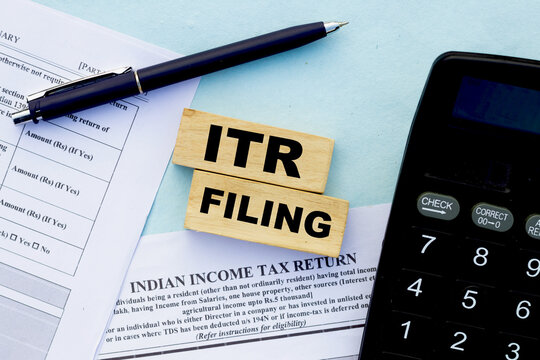Income Tax Return (ITR) – AY 2025-26 (FY 2024-25)
Income Tax Return
It is essential to be aware of the various forms required for filing ITR, as it varies based on the nature of income and the type of taxpayer. For individuals with income from salaries, rental income, or interest, the ITR-1 form (Sahaj) is typically used. However, if your income exceeds a certain threshold or includes capital gains, you may need to use ITR-2 or ITR-3 forms. The online filing process has made it more convenient for taxpayers to file their returns without the need for a physical visit to the tax office.
Filing an Income Tax Return (ITR) is a mandatory process for individuals and entities whose income exceeds the basic exemption limit in a financial year. For the Assessment Year 2025-26, it pertains to income earned during the Financial Year 2024-25 (i.e., from 1st April 2024 to 31st March 2025).
Importance of Filing ITR
Filing your income tax return has several advantages beyond mere compliance with the law. It serves as a crucial document while applying for loans or credit cards, as it demonstrates your income level and financial stability to lenders. Moreover, a timely filed return helps build your credit history, which is essential for securing better loan terms in the future. Additionally, filing an ITR can also help in avoiding future tax liabilities; the earlier you file, the better you can manage your finances and plan for your taxes. Furthermore, filing a return is a prerequisite for claiming a refund. If you have paid excess tax during the financial year, filing an ITR is the only way to reclaim your money from the government.
Filing an ITR is not just a statutory requirement; it is also a crucial step in managing one’s finances effectively. It can help in tracking your income and expenses, providing a clear picture of your financial health. Understanding the nuances of tax deductions, exemptions, and credits can significantly affect your taxable income. For instance, individuals can claim deductions under Section 80C for investments in specific financial instruments, such as Public Provident Fund (PPF), National Pension Scheme (NPS), and Equity-Linked Saving Scheme (ELSS). These deductions can help reduce your taxable income substantially, thus lowering your overall tax liability. Moreover, certain expenses, such as medical insurance premiums under Section 80D, can also be deducted from your taxable income, providing additional savings.
Key Due Dates for ITR Filing – AY 2025-26
- 15th September 2025: For individuals, salaried employees, and HUFs not liable for audit(Extended).
- 30th September 2025: For companies or other taxpayers liable to audit.
- 31st October 2025: For those required to submit a transfer pricing report (Form 3CEB).
For more detailed guidance on the forms and procedures involved in filing your income tax return, you can visit the official website of the Income Tax Department of India. This website provides comprehensive resources, including FAQs, tips for taxpayers, and updates on tax laws and regulations. Additionally, you can find useful tools to help you calculate your tax liabilities and determine your eligibility for various deductions and exemptions. Utilizing these resources can make the process of filing your ITR much simpler and more efficient.
It’s also beneficial to consult with a tax professional or an accountant who can provide personalized advice based on your financial situation. They can help identify all possible deductions and credits you may be eligible for and ensure that your return is filed accurately and on time. Additionally, they can provide insights on tax planning strategies to help you minimize your liabilities in future financial years.
Failure to file your ITR on time can lead to severe consequences, including penalties and interest on the unpaid tax. If you miss the deadline, you may still file a late return, but penalties can significantly increase your tax burden. Not only does late filing attract a fine, but it can also affect your eligibility for certain tax benefits and deductions that are only available for timely filers. It is always advisable to keep track of your income and expenses throughout the year to avoid last-minute rush and ensure accurate reporting.
Filing the return on time helps avoid penalties, interest on tax due, and ensures eligibility for refunds and loans.
For help In filling Income tax return contact us by writing mail us singhassociates214@gmail.com & Mobile Number 7755080214

Good